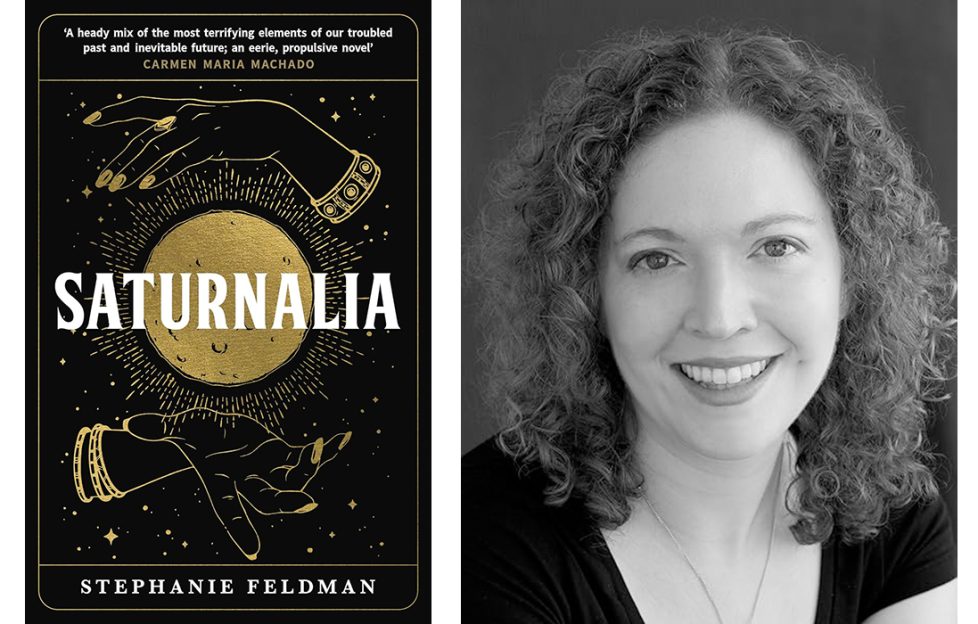Saturnalia | Stephanie Feldman

REVIEWED BY LINDA HILL
Reading Saturnalia was akin to experiencing a vivid nightmare suffused in half reason and half terror. I was utterly mesmerised!
It took a while for my brain to be able to tune in to the story because it’s so unique; unlike anything I’ve read before.
Saturnalia is very intense, so while it’s a short book, I had to read it in brief bursts for my mind to accommodate the assault on my senses. It’s the literary equivalent of a kaleidoscope where meanings shift, reform and deceive. There’s an alchemical blend of danger, myth, magic and, perhaps most unsettling of all, ordinariness – like the need to be able to pay rent – that is all the more disturbing in its relatability.
The Philadelphia setting is both familiar and strange enough that even the most prosaic elements feel unnerving. Stephanie Feldman writes with evocative prose, immersing readers in the action and making them part of the narrative through her startling, filmic descriptions. Iterative images of red and black, suggestive of danger and death, weave through the book, giving it a spellbinding edginess.
Nina’s character is compelling and captivating
Against a dystopian backdrop of misrule and fiesta, protagonist Nina’s character is gradually peeled back, making her captivating if mercurial, compelling if occasionally duplicitous. She is both strong and vulnerable, and the more the narrative progresses, the more charismatic and compelling she becomes.
Set over just one night, the plot’s five-part structure has a traditional unity of time and place that serves only to contrast the chaos of the action. It’s frenzied, fast-paced and not completely resolved; readers are left thinking about Nina and what might happen next. It’s almost as if the narrative cannot be contained within the pages of the book.
Part horror, part dystopia, part magical realism and part social commentary, Saturnalia defies genre, but it is dark, disturbing and totally perfect for a winter read. I’d defy anyone not to be intrigued. You might not like it. You might be terrified by it. You might love it, but you won’t be indifferent to it.




